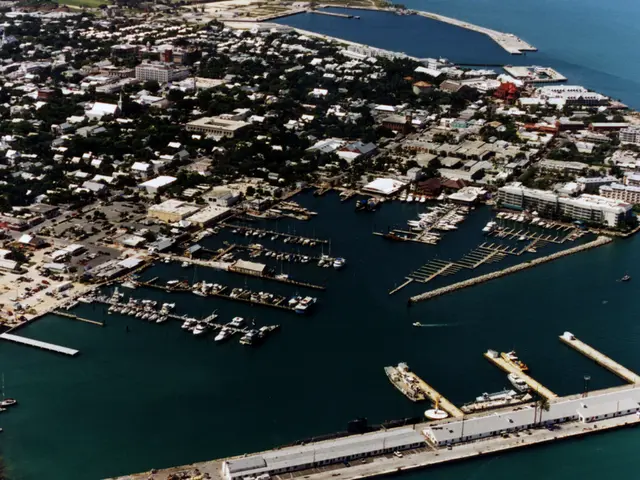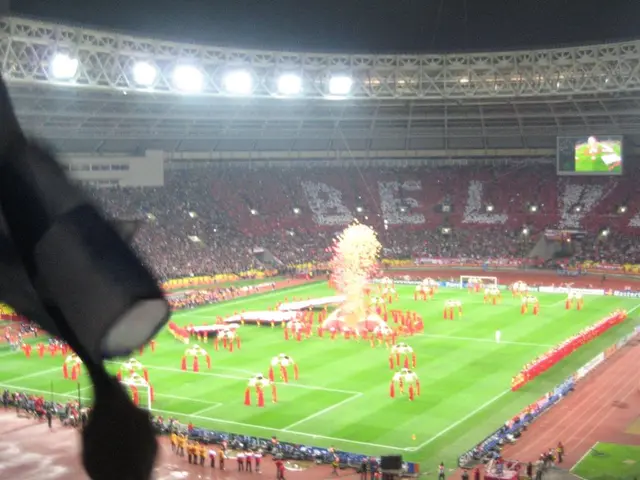Azerbaijan and Armenia have reached a U.S.-mediated peace agreement, and Prime Minister Shehbaz has expressed his approval for this development.
In a significant turn of events, Azerbaijan and Armenia have signed a peace agreement, marking the end of a decades-long conflict over Nagorno-Karabakh. This US-brokered agreement was signed at a White House Summit under the auspices of US President Donald J. Trump.
The agreement, hailed as a "historic moment" by Deputy Prime Minister and Foreign Minister Ishaq Dar of Pakistan, aims to boost bilateral economic ties and move the countries towards a full normalisation of their relations. Dar deeply appreciated the role of President Trump in facilitating this breakthrough and expressed hope that the spirit of dialogue would serve as an example for other regions facing protracted conflicts.
Pakistan has welcomed the peace agreement, reaffirming its steadfast support for Azerbaijan and expressing solidarity with them during this "proud moment of their history." Dar extended his heartiest congratulations to Foreign Minister Jeyhun Bayramov of Azerbaijan.
The peace agreement is seen as a potential blow to Russia's influence in the region, as it is expected to rattle Moscow, which sees the South Caucasus as within its sphere of influence. However, Ishaq Dar's statement did not mention any expectations about the agreement rattling Moscow.
The conflict between Armenia and Azerbaijan primarily revolves around Nagorno-Karabakh, a region with an Armenian ethnic majority but located within Azerbaijan's borders since Soviet times. The dispute's origins lie in the early 20th century but escalated dramatically in the late 1980s when Armenians in Nagorno-Karabakh sought to transfer the region from Azerbaijan to Armenian jurisdiction, sparking ethnic tensions and warfare following the Soviet Union's collapse.
The First Nagorno-Karabakh War (1988–94) resulted in Armenian forces, backed by Armenia, gaining control over Nagorno-Karabakh and adjacent Azerbaijani territories, creating a long-lasting territorial deadlock accompanied by a fragile, often violated ceasefire. The conflict resumed with flare-ups, most notably in 2016 and then a major war in 2020, wherein Azerbaijan reclaimed much of the lost territory through military successes.
In 2023, a US-brokered peace agreement helped bring an end to the decades-long dispute by facilitating a final resolution and a framework for coexistence. This agreement followed Azerbaijan’s military gains and the displacement of ethnic Armenians from Nagorno-Karabakh and aimed to stabilise the region politically and socially while addressing transit arrangements and security guarantees to prevent further conflict. It marked a significant turning point by formally ending active hostilities and opening pathways for political dialogue, economic integration, and normalisation between the two countries.
Dar commended the vision and resolve shown by President Aliyev in steering the resolution process. He believes that the agreement will open new avenues for trade, connectivity, and regional integration. Dar sees the agreement as paving the way for a future free of the painful shadows of the past, and one built on peace, stability, and hope. He also expressed hope that the spirit of dialogue would serve as an example for other regions facing protracted conflicts.
Prime Minister Shehbaz Sharif described the agreement as a "dawn of a new era of peace, stability, and cooperation in the South Caucasus." The peace agreement is indeed a significant milestone towards peace and stability in the region, and it is hoped that it will serve as a catalyst for further regional cooperation and development.
[1] Nagorno-Karabakh conflict timeline, BBC News (2018), https://www.bbc.com/news/world-europe-21159906 [2] Nagorno-Karabakh conflict: A brief history, Al Jazeera (2020), https://www.aljazeera.com/news/2020/9/28/nagorno-karabakh-conflict-a-brief-history [3] Nagorno-Karabakh conflict: What's the background?, BBC News (2020), https://www.bbc.com/news/world-europe-54517873 [4] Nagorno-Karabakh conflict: What's the background?, BBC News (2020), https://www.bbc.com/news/world-europe-54517873 [5] Nagorno-Karabakh conflict: Azerbaijan and Armenia agree ceasefire, BBC News (2020), https://www.bbc.com/news/world-europe-54999469
The peace agreement, signed at the White House Summit in 2023, has been acknowledged as a significant achievement, particularly in terms of its potential to boost bilateral economic ties and move the regions towards a full normalisation of their relations, as stated by Deputy Prime Minister and Foreign Minister Ishaq Dar of Pakistan. The agreement's impact on global politics is reflected in the hope that the spirit of dialogue it embodies will serve as an example for other regions facing protracted conflicts, a sentiment expressed by Ishaq Dar. The index of general news, politics, war-and-conflicts, and position of the peace agreement in the global arena is evident in its potential to rattle Russia's influence in the South Caucasus and its anticipated role in fostering regional integration and development.








